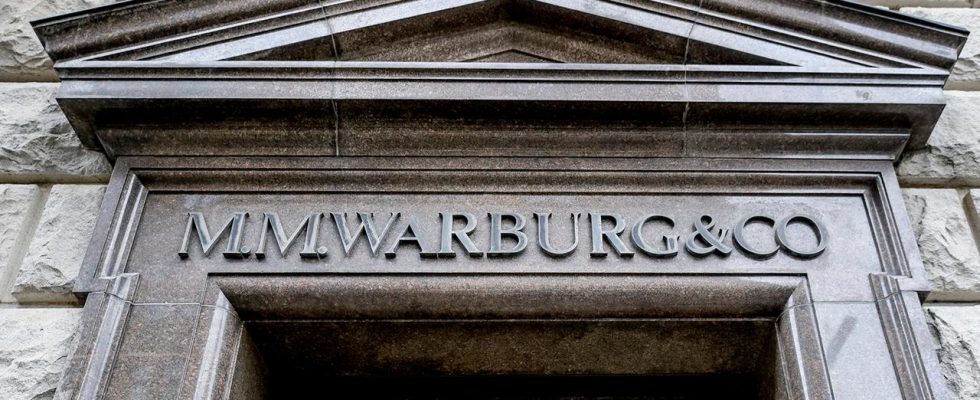exclusive
The Union is filing a complaint with the Federal Constitutional Court because the traffic light factions have refused a committee of inquiry into the Cum-Ex scandal. The content suits him ARD Capital Studio exclusively before.
When Chancellor Olaf Scholz posted a photo of himself with an eye patch after his sports accident and called for memes, it wasn’t long before a photo of him with two eye patches appeared on the internet. The question: “Mr. Chancellor, have you read this report on the Cum-Ex scandal?”
The cum-ex affair, in which investors had their taxes reimbursed several times, is still attached to the chancellor and continues to cause debate. The Union faction does not consider the gaps in memory in the tax scandal, which Scholz repeatedly emphasizes when it comes to meetings with the former Warburg Bank owner Christian Olearius, to be credible and is now going to the Federal Constitutional Court.
The reason: A committee of inquiry she requested in the Bundestag on Cum-Ex was rejected in July with a majority of the traffic light parliamentary groups in the Bundestag. It should be clarified to what extent Chancellor Scholz, then still the mayor of Hamburg, had an influence on the Warburg-Bank cum-ex affair. There is already a committee of inquiry in Hamburg. One heard from the SPD in advance that the matter had been clarified and that there were no new findings.
A question of jurisdiction?
In investigative committees, possible grievances in government and administration and possible misconduct by politicians can be investigated. They are an important control instrument for the parliamentary opposition. According to Article 44 paragraph 1 of the Basic Law, the Bundestag is obliged to appoint a committee of inquiry if a quarter of the members of the Bundestag so request. However, only what generally falls within the competence of the federal government may be examined. This means that possible misconduct or grievances in state authorities cannot be investigated.
The Bundestag therefore examined which questions could even be permitted in a possible Warburg investigative committee. The federal government is not responsible for the actions of the administration in Hamburg, it was said again and again. There were indications to the Union that some questions did not meet constitutional requirements and that they should reformulate them, the Greens said. In the end, the traffic light parties then voted against the committee of inquiry. According to the reasoning, only parts of the Union’s application were admissible. That’s just not enough.
Middelberg: Scholz has “massively” something to hide
Mathias Middelberg from the CDU describes this argument as “silly” and is now complaining with his parliamentary group to the Federal Constitutional Court. For the first time in the history of this country, the SPD is blocking a committee of inquiry and thus a constitutionally guaranteed minority right. “That shows that your chancellor has a lot to hide,” explains Middelberg.
With the application to the Federal Constitutional Court, which ARD Capital Studio exclusively available, the Union parliamentary group wants to get the Federal Constitutional Court to determine “that the German Bundestag violated the rights of the Union MPs and the parliamentary group through its decision (…) with which the establishment of a committee of inquiry was rejected”.
Union names three reasons for U-Committee
Three reasons are listed in the application, why there should now be a committee of inquiry. Firstly, to uncover enforcement problems with the tax authorities. Tax law is federal law, which is enforced by the state tax offices. However, the Federal Ministry of Finance can issue instructions to ensure uniform application of tax law. In order to be able to check whether there were errors at the federal level, a committee of inquiry must first be able to clarify as a “preliminary question” what the state authorities have done, according to the argumentation of the Union faction.
Secondly, to do justice to the federal budgetary responsibility of the Bundestag. It is particularly about taxes that the federal and state governments are jointly entitled to. In this context, the Bundestag has information and clarification rights.
As a third point, the Union faction cites the political credibility of the Federal Chancellor. It is about the behavior of the current Chancellor in his various functions at federal level, but also about his behavior in former functions at state level. There is public interest because of Olaf Scholz’s outstanding role in the Cum-Ex complex and the dimension of the scandal. The state suffered total damage estimated at at least twelve billion euros because investors had had the capital gains tax paid once reimbursed several times with the help of banks.
“Important basis for the decision of the voters”
From the point of view of the constitutional lawyer Jelena von Achenbach, who spoke from the Greens parliamentary group as an expert on the subject in the Bundestag, the Union parliamentary group should have formulated more of a federal reference in its questions for the committee of inquiry. “The application must not be aimed at only investigating events in Hamburg and the actions of the Hamburg government. A committee of inquiry is not a supervisory body over a state government. Rather, it serves to enable the Bundestag to monitor the federal government.”
However, she has sympathy for the questions about Olaf Scholz’s political credibility. “I am convinced that the actions of a Federal Chancellor before his term of office should also be examined,” says von Achenbach. “It can be an important basis for the voters’ decision and also for the question of whether someone is politically suitable for the office of Federal Chancellor. But there is still no case law on this and that is also controversial.”


